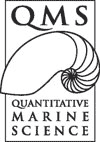
The 8th International Conference and Workshop on Lobster Biology and Management
Charlottetown, Prince Edward Island, Canada, September 23-28, 2007
In September 2007 I attended the 8th International Conference and Workshop on Lobster Biology and Management. The conference was held in Charlottetown, the capital of Canada 's smallest province, Prince Edward Island. Over 275 delegates attended the five day conference to discuss a diverse range of topics related to lobster research and the management of lobster fisheries. There were a large number of Australian delegates 17 of whom were from Tasmania . The Tasmanian contingent included a broad spectrum of people from management, industry and research.
Due to the size of the conference the presentations were separated into two streams, with an industry day running as a third stream on the Thursday. Day one included a session on aquaculture and a special behaviour symposium. I attended talks in both sessions with the talk given by Arani Chandrapvan on the translocation of deep-water rock lobsters to improve market traits, yield and value being the highlight of the conference. On day two there was a short session on climate change in the morning which I attended followed by a session on population dynamics for the rest of the day. The other stream of talks had sessions on lobster growth, health assessment and disease.
On the third day I gave my talk, ‘Investigation of different methods for improving tag reporting rate in fisheries tagging experiments, a cost benefit analysis' in the assessment methodologies stream that ran for the whole day. The talk demonstracted the benefits of using passive integrated transponder (PIT) technology in tagging experiments and received some useful feedback from other delegates. In the other stream on day three was devoted to talks on larval studies, I spent the whole day at talks in the assessment methodology stream.
Day four was interesting in that there was a third stream of talks focusing on matters relating to the lobster fishing industry. The other two streams included sessions the last few talks on assessment methodologies, management strategies, habitat studies, ecosystem interaction and nutrition. It was perhaps unfortunate that the management strategy session was scheduled to be at the same time as the industry day as the focus of talks was often similar. The final day included the remainder of the management strategies and nutrition talks along with physiology and finished at lunch time.
Attending the conference allowed me to present my research and interact with the global lobster research community I greatly appreciate the opportunity given to me by the QMS program, TAFI and the School of Mathematics. Photos can be found on the conference website.